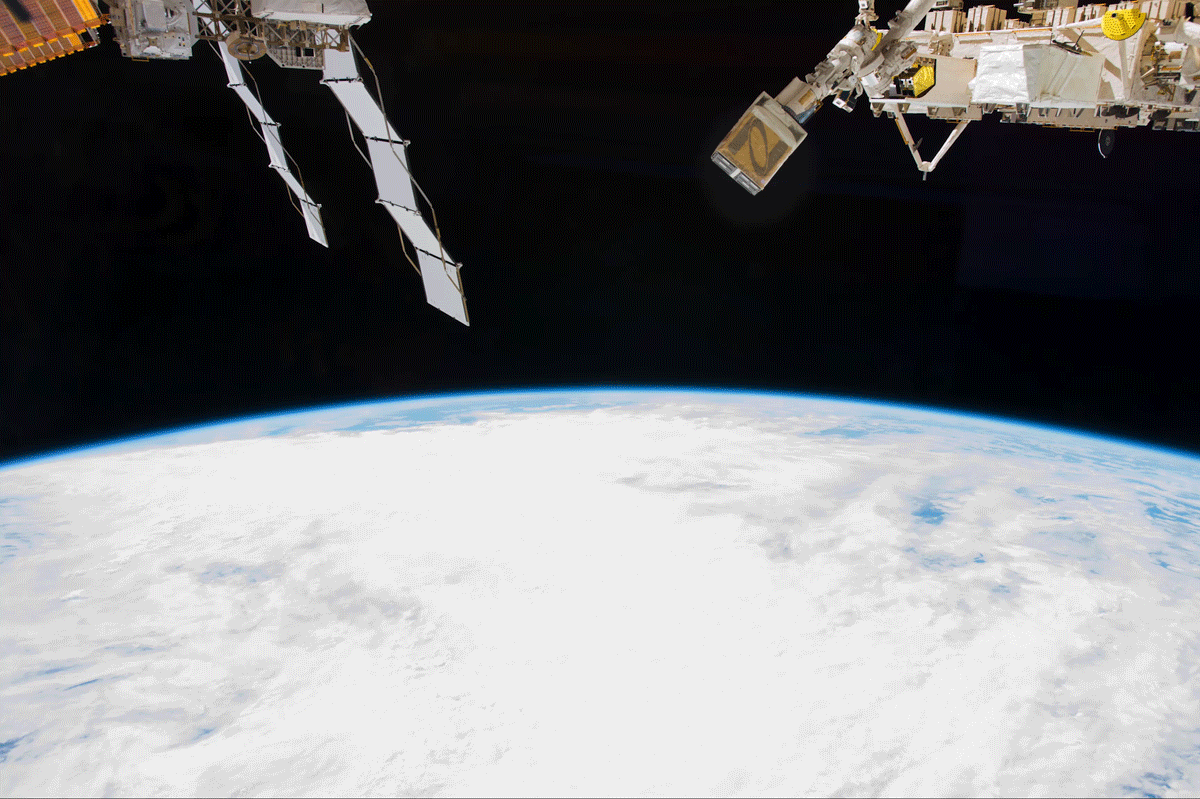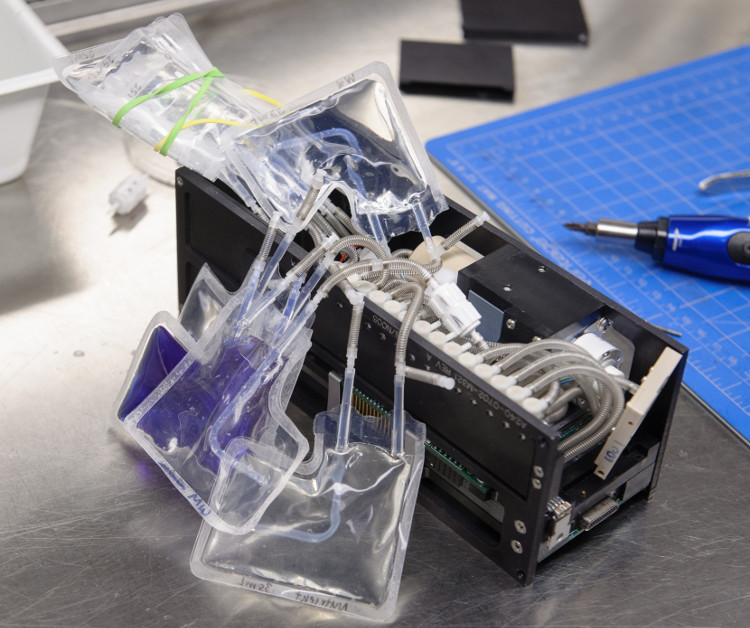NASA began to launch the most important experiment for space travel
Astronautics are in need of groundbreaking experiments, to ensure the safety of astronauts.
The journey of humanity is gradually turning to a new history. Now, getting people out into space is no longer strange, and we are heading for longer, more distant journeys. In particular, the nearest target at the present time is the journey to conquer Mars.
But when people are too long in the universe, some difficult-to-control effects can occur. So recently, NASA decided to launch one of the most important experiments in space travel , in order to verify what the impact of bacteria on the outer space people has changed.

NASA launched EcAMSat automatic satellite.
Specifically, NASA launched a sample into space from, via EcAMSat automatic satellite. They believe that in micro-gravity environments, bacteria's resistance to bacteria will be stronger, and that is dangerous for humans.
"If resistance is stronger in the micro-gravity environment, then science will change that, because we know what is responsible for this is the genetic gene, and we can reprogram the gene. as appropriate " - quoted AC Matin, an expert from Stanford University (USA).
"If it is really serious, we need to know the impact of the micro-gravity environment on systems inside the human body."

Automatic module in EcAMSat.
It is known that the experimental strain of E. coli can cause - one of the visible risks to astronauts. According to Matin, the bacteria outside the universe will suffer great pressure. This pressure will inadvertently activate the bacteria's defenses, making it difficult for antibiotics to work.
At Earth, bacteria also form antibodies based on the natural selection process when exposed to antibiotics, only at a slower rate. So if we know the resistance of E. coli in the universe, we will better understand their congruence on the Earth, and then come up with more effective treatments.
To perform the experiment, experts using the EcAMSat satellite - an automatic satellite, can perform the experiment without human intervention. EcAMSat will be put into orbit from ISS.
"In order to understand the effects on human health due to micro gravity and radiation from the Sun, there will need to be more extensive knowledge" - quoted Stevan Spremo, project manager from NASA.
"This experimental knowledge will be an important milestone, helping answer many questions necessary for the future."
"Sensors and technologies in EcAMSat help NASA develop more methods of determining life in further locations, like or".
- Began the period of taking passengers into the universe
- Space shuttle Atlantis into the launch pad
- America built the world's most powerful rocket
- Learning under Russia, NASA intends to sell travel tickets to ISS
- Alien travel
- NASA: This is a great time for space travel
- NASA's new generation spacecraft rocket launcher
- Did America secretly experiment in time travel and teleportation?
- Do you want to travel the universe? According to NASA astronaut, don't be foolish!
- Experiment has never been in space
- NASA confirmed its plan to send the Cygnus to the International Space Station in October
- The reason NASA once turned away from female astronauts
 Van Allen's belt and evidence that the Apollo 11 mission to the Moon was myth
Van Allen's belt and evidence that the Apollo 11 mission to the Moon was myth The levels of civilization in the universe (Kardashev scale)
The levels of civilization in the universe (Kardashev scale) Today Mars, the sun and the Earth are aligned
Today Mars, the sun and the Earth are aligned The Amazon owner announced a secret plan to build a space base for thousands of people
The Amazon owner announced a secret plan to build a space base for thousands of people The hidden fuel of the human brain: How gut bacteria shape intelligence?
The hidden fuel of the human brain: How gut bacteria shape intelligence?  New bacteria appear in unexpected places
New bacteria appear in unexpected places  3,600-year-old cheese 'reveals' secrets of ancient food preparation
3,600-year-old cheese 'reveals' secrets of ancient food preparation  Spanish mother and daughter experts 'train' bacteria to restore paintings
Spanish mother and daughter experts 'train' bacteria to restore paintings  NASA is worried about mutant bacteria in the Space Station spreading to Earth
NASA is worried about mutant bacteria in the Space Station spreading to Earth  Identifying the deadly link between oral bacteria and cancer
Identifying the deadly link between oral bacteria and cancer 